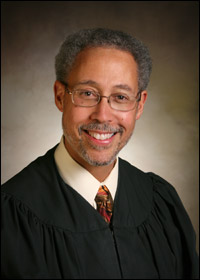Circuit Court can sequester attorneys
By: WISCONSIN LAW JOURNAL STAFF//March 3, 2011//

Circuit courts have discretion to prevent an attorney from sharing the testimony of prior witnesses with a witness who has yet to testify.
Although sec. 906.15(3) on its face only refers to communications between witnesses directly, the Wisconsin Court of Appeals held on Feb. 24, “the only reasonable reading of the statute is that the court may restrict those communications when necessary to prevent indirect communications, sharing one witness’s testimony with another.”
After being convicted by a jury of first-degree sexual assault of a child, Derek J. Copeland filed a postconviction motion, claiming ineffective assistance of counsel at trial.
A hearing on the motion was held on Oct. 14, 2008, but his trial attorney had yet to testify when the hearing was adjourned until Jan. 6, 2009.
Copeland moved to clarify the scope of the sequestration order to specify that the prosecutor was not to discuss the testimony already given with his trial attorney. The circuit court denied the motion, and Copeland filed a petition for leave to appeal.
The Court of Appeals granted the motion and reversed in an opinion by Judge Paul Higginbotham.
Section 906.15(3) provides that a court, “may direct that all excluded and non-excluded witnesses be kept separate until called and may prevent them from communicating with one another until they have been examined or the hearing is ended.”
The court acknowledged that the rule does not explicitly reference communications between witnesses and attorneys. But it held that circuit courts have discretion to prohibit such communications nonetheless.
The court reasoned, “There is no practical difference between an attorney sharing the testimony of a witness with another witness who has yet to testify and the same two witnesses communicating directly with each other. The result is the same: the second witness receives information about the first witness’s testimony. The second witness might then tailor his or her testimony to that of the first witness, potentially frustrating the fact finder’s ability to discern the truth.”
Without authority to restrict attorney-witnesses communication, the court found that sequestration orders would be toothless.
The court added that the power of courts to prevent attorney-witness communication has been accepted without question in previous cases.
In State v. Green, 2002 WI 68, 253 Wis. 2d 356, 646 N.W.2d 298 (Abrahamson, C.J., concurring), Chief Justice Abrahamson encouraged courts to specify whether sequestration orders include communications between witnesses and attorneys.
In addition, numerous federal cases interpreting the counterpart to the rule hold that courts have discretion to prohibit counsel from conferring with witnesses during a hearing.
The court concluded, “the only reasonable construction of Wis. Stat. sec. 906.15(3) is that a circuit court has the authority to prevent an attorney from sharing with a nonparty witness who has yet to testify the testimony of prior witnesses during a recess, including barring a witness from reading a transcript of that testimony.”
What the Court Held
Case: State v. Copeland, No. 2008AP2713-CR
Issue: Can a sequestration order include communications between attorneys and witnesses?
Holding: Yes. Section 906.15 implicitly gives discretion to prevent an attorney from sharing testimony of prior witnesses with those who have yet to testify.
Attorneys: For Plaintiff: Maura F.J. Whelan, Madison; For Defendant: David Leeper, Madison.
David Ziemer can be reached at [email protected].
Legal News
- Former law enforcement praise state’s response brief in Steven Avery case
- Eric Toney announces re-election bid for Fond du Lac County District Attorney
- Former Wisconsin Democratic Rep. Peter Barca announces new bid for Congress
- Republicans file lawsuit challenging Evers’s partial vetoes to literacy bill
- More human remains believed those of missing woman wash up on Milwaukee Co. beach
- Vice President Harris returning to Wisconsin for third visit this year
- Wisconsin joins Feds, dozens of states to hold airlines accountable for bad behavior
- Trump ahead of Biden in new Marquette poll
- Bankruptcy court approves Milwaukee Marriott Downtown ‘business as usual’ motion
- New Crime Gun Intelligence Center to launch in Chicago
- Arrest warrant proposed for Minocqua Brewing owner who filed Lawsuit against Town of Minocqua
- Wisconsin Supreme Court justices question how much power Legislature should have
WLJ People
- Power 30 Personal Injury Attorneys – Russell Nicolet
- Power 30 Personal Injury Attorneys – Benjamin Nicolet
- Power 30 Personal Injury Attorneys – Dustin T. Woehl
- Power 30 Personal Injury Attorneys – Katherine Metzger
- Power 30 Personal Injury Attorneys – Joseph Ryan
- Power 30 Personal Injury Attorneys – James M. Ryan
- Power 30 Personal Injury Attorneys – Dana Wachs
- Power 30 Personal Injury Attorneys – Mark L. Thomsen
- Power 30 Personal Injury Attorneys – Matthew Lein
- Power 30 Personal Injury Attorneys – Jeffrey A. Pitman
- Power 30 Personal Injury Attorneys – William Pemberton
- Power 30 Personal Injury Attorneys – Howard S. Sicula











